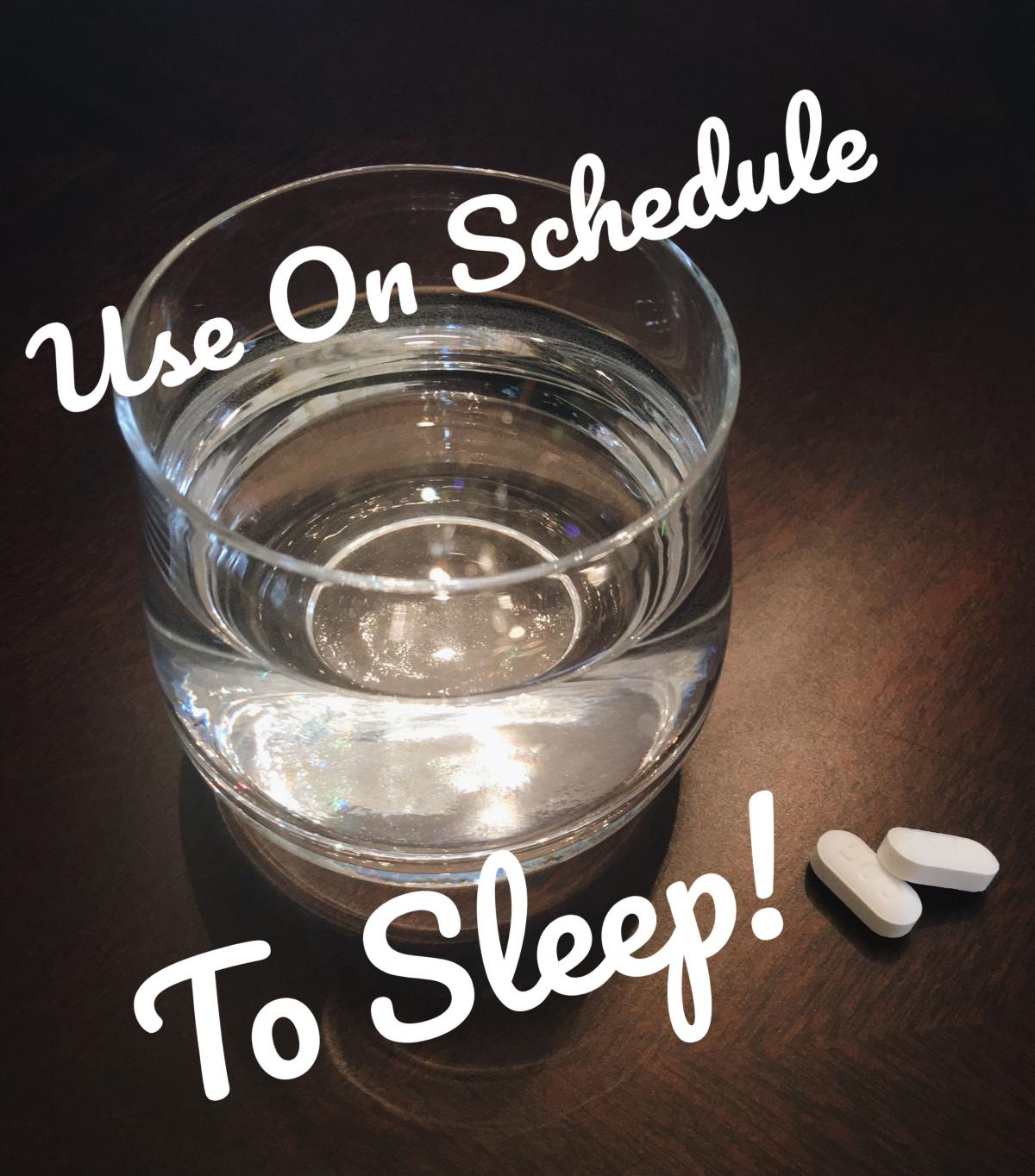There is nothing worse than tossing and turning in bed trying to sleep after knee replacement surgery; your knee the size a large grapefruit, throbbing with your every move!
While most advice centers on what body positions work best to ensure a good nights sleep, these 10 tips will focus on the foundations of rocking the post-surgical knee replacement sleep thing.

You CAN sleep well after a knee replacement but it requires some thoughtful planning and preparation or you chose to wing it and hope for the best.
With a good nights sleep you’ll be ready to attack a day of rehab like nobodies business. Sleep poorly and everything goes downhill from there, the pain seems worse, the
therapist-a jerk, your spouse-a nag.
So let’s get cracking and see what can be done.
1. Lower or eliminate dependence on narcotics prior to surgery
Getting accustomed to narcotics makes then less effective over time, which is why you need to keep increasing the dose. If you want a narcotic pain pill to cut the edge of post-surgery chemical pain (a really good idea), you’ll need to wean off or at least lower your dosages. This will jump start their effectiveness at lower doses when you really need them. Learn more about Opioids here.
I realize this is easier said than done but if you start a few months ahead of time, you’ll be maximizing the pills effectiveness at a critical time. You’ll be glad you did.
2. Optimize sleep hygiene weeks before your surgery
This requires you to be proactive but many people are not sleeping well before they get knee replacement surgery. There are many good articles on how to create a sleep routine that helps you get to bed and stay asleep on a regular basis.
3. Use your pain pills…as directed
Take your pain pills on schedule. Do not take them “as needed.” I repeat. Take your pain pills on schedule. Do not take them “as needed.” As a therapist who has treated hundreds of knee replacement patients, this is probably the number one error that I encounter.
If you allow the medicine to be eliminated totally from your system, when you reach for a pain pill get ready for a disappointment. You let the proverbial “horse out of the barn” and it can take up to 1/2 day to corral that pain back to “manageable.”

I’m usually the first person to suggest reducing dependence on pills as a general rule of thumb, however your post-surgical knee will feel like it has had an encounter with a Mack truck.
Better pain management, better sleep it’s that simple.
Another side benefit to using the pain pills as directed is that it will allow you to do your rehab effectively during those early days. Who wants to sit around the house in misery for two weeks and not get anything accomplished.
4. Find out your state or surgeon’s protocol for narcotic refills
Patients are are now seeing a real bottleneck when attempting to get refills on narcotic pain meds. There are unwieldy regulatory hoops to jump through that differ by state all in the name of solving the opioid crisis. Some will limit the initial script to only a few days and mandate an in person doctor visit to get a refill.
Make sure you find out what the system entails before you are about to run out on a Friday night at 4pm and make sure you surgeons is committed to getting you enough quality meds to get you through the first two weeks.
Again it’s not impossible to make it through that time period without narcotics, but your rehab effectiveness goes down drastically, why waste that time?
Needless to say, you won’t be sleeping well after your knee replacement surgery if you neglect this task.
5. Use your walker for at least two weeks
Lots of people like to brag about how quickly they jettisoned their walker. Do not be that person. Be ”nice” to your knee during the first two weeks and you’ll have less pain.
If you talk to anyone who has had a surgery that needed a bone graft you’ll fliterally been cut off…. This hurts…. the less you put a ton of compressive forces on them in the beginning the better your rehab goes.
So use protected weight bearing and take some weight onto your arms with the walker, slow down at least for the first two weeks.
Less pain means better sleep. Anyone seeing a pattern here?
6. Keep a snack handy by the bedside
Blood sugar dysregulation… a fancy name for glucose levels that are “out of wack” post surgically is common. It is possible that you are walking up because your blood sugar is dropping. When that happens cortisol is secreted to bring it back up. Cortisol is the hormone that wakes you up in the morning. Melatonin helps you go to sleep, they work in opposite cycles.
Having a snack will get the blood sugar back where it should be and reduce the cortisol letting you fall back asleep. It is worth a try if you are staying at the ceiling tiles at 2 am in the morning.
You could also try taking melatonin tablets as a sleep aid before you go to bed. Melatonin is a better option than a sleeping pill.
7. Hydrate well in the AM
Opioids slow intestinal motility and can constipate you in a hurry. Make sure you have a plan to manage this before surgery. Include the concept of pre-hydrating in the morning so that you are not trying to take a lot of water before bedtime and keeping yourself up going to the bathroom. Get started with ab undant water intake in the morning to get ahead of the game.
undant water intake in the morning to get ahead of the game.
8. Plan to eat light
Eating light at night helps you to sleep better, especially when taking pain medications. It is tempting to have food from a pick up window because it’s just easier on family and friends, but avoid it if possible.
Planning ahead with homemade meals that you have frozen and can easily reheat is a much better option or plan for light salads instead.
In short don’t overburden the already slow moving intestines but eating large amounts of cheese, red meat and other things that are hard to digest.
No one sleeps well when they are constipated, bloated or have just eaten a heavy meal. Give your gut a break and to improve sleep after knee replacement surgery.
9. Make sure you are active during the day
Do your exercises 4 times a day like I recommend in my book, get up and walk frequently, just remember to use protected weight bearing. Sit in a chair that is easy to get out of…ahem NOT A RECLINER, so that you will get up more and move.
By staying active, even getting some fresh air you’ll be more naturally tired at the end of the day. If you lay in bed or recline deeply you are more likely to dose off and pay for it later.
10. Find a comfortable position to sleep after knee replacement surgery
The most comfortable position only helps if you have done most of the other nine steps. Below are some videos to help you explore positioning for maximum comfort and optimal sleep after you total knee replacement.
Happy sleeping….zzzzzzzzzzzzzzz


2 replies to "10 Tips to Master Sleep After Knee Replacement Surgery"
3.5 weeks out and need help controlling nighttime TKR pain so I can sleep. Aching, shooting pain, etc. Can not tolerate opioids, which caused gastric distress and loss of appetite. Am relying on Extra Strength Tylenol which doesn’t do much. Tried icing before or during bed. Have taken Ativan but that doesn’t last long. Are there other meds? Friends have mentioned muscle relaxants, anti-inflammatories, etc. have tried melatonin. So tired each morning. Thanks!
Hi Laurie,
Sorry to hear about your difficulties. First off, shooting pain is not a normal pain 3.5 weeks out. Shooting pain is more related to nerve root pain so I would check sleeping position to make sure that you do not have a shearing force at the knee and also check with your PT to make sure there is no nerve involvement. Secondly, one of the biggest mistakes that will cause significant inflammation and pain is doing a lot of weightbearing without support on the knee too soon after the surgery. Walking with a cane, cutting back on walking and not leading on that leg going up the stairs can help reduce inflammation and pain and consequently help you to sleep better at night. The ends of your long bones have been cut and they are very tender and can stay inflammed if you try to be too aggressive too soon. Of course that might not be you but maybe some of these suggestions will help. THere are also herbal teas for the purpose of enhancing sleep that you could try. Best Regards